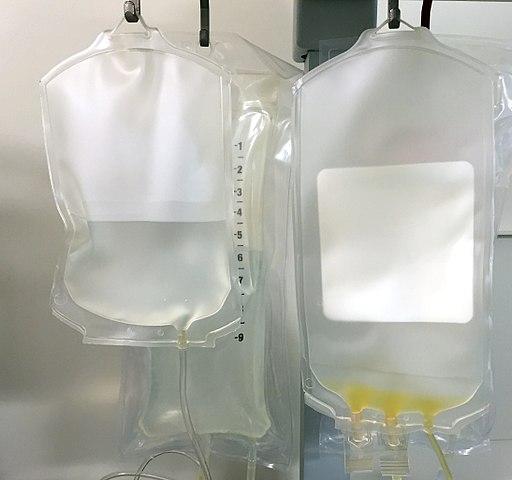One of the more common infections associated with overtreatment is C. difficile colitis, an infection of the large intestine, the colon. It occurs in patients subject to multiple courses of antibiotics, which have significantly altered the bacteria that naturally live within our intestines, the microbiome. The imbalances, think of it as collateral damage to the more beneficial bacteria, have allowed C. difficile to become more prominent. It is debilitating on its own, and a more significant problem in patients already weakened by the issues bringing them to the hospital in the first place.
While initial management has been with even stronger antibiotics, antibiotic resistance to those agents is a growing problem, and effective alternative therapy is to restock the colon with an infusion of bacteria from a healthy individual. For the thoughtful reader who might ask the source of the transplanted bacteria, the answer is that it comes from another person’s feces, collected, homogenized or dehydrated and given as an enema or pill. The medical term is fecal microbiota transplant or FMT.
FMT has a long history but remains an investigational drug with FDA oversight. In the last few days, the FDA issued a safety warning to physicians reporting that two adults who received FMT developed an even more extensive infection from an antibiotic resistant E. Coli in the FMT they received and one died. Both patients already had compromised immune systems.
FMT has a lot to offer medically and serves as a useful reminder for all of us. First, it is theoretically a more, dare I say, “natural approach” to treatment. Rather than continue to apply several courses of broad-spectrum antibiotics, that are known to cause more collateral damage to an already damaged microbiome, physicians are working in tune with the problem, rebalancing the bacterial contents of our intestine. It is a technique that also shows promise in treating patients with the chronic inflammatory disease of their colon, ulcerative colitis. Second, FMT began as an experiment by clinicians, not in a research laboratory; and how to prepare the transplant material, to screen for donors, and administer the treatment all had to be discovered. Treating patients with FMT was a bit of a cottage industry until it was used enough and was efficacious enough to attract the attention of investment dollars and the FDA.
In the past few years, the FDA has reigned in, and standardized preparations and screening for as part of the workup, you need healthy donors. In the early days, family members could be found to donate, as it is beginning to be commercialized, companies have sought unrelated donors because they can supply the raw materials more consistently. As it turns out, the health and medical history of the donor is more critical than we had thought, and more exacting restrictions need to be applied.
In the two cases reported, the transplant contained multidrug-resistant organisms or MDROs. The FDA recommended that donors be screened for conditions that would lead to a higher risk of MDRO in the transplant sample. More importantly, they want the informed consent that patients are given before this experimental therapy to include this safety concern and how it is being addressed.
There are multiple studies underway of FMT’s efficacy both in treating C. difficile and ulcerative colitis, involving multiple investigators and preparations. This is the work done in the background, before an investigational new drug, makes it into the marketplace. This is the R&D that we hear about from Big Pharma when they seek to explain the high cost of medications. This is the day-to-day face of solving problems and developing medications.
Source: Fecal Transplants May Transmit Deadly Drug-Resistant Infections, FDA Warns Medscape




